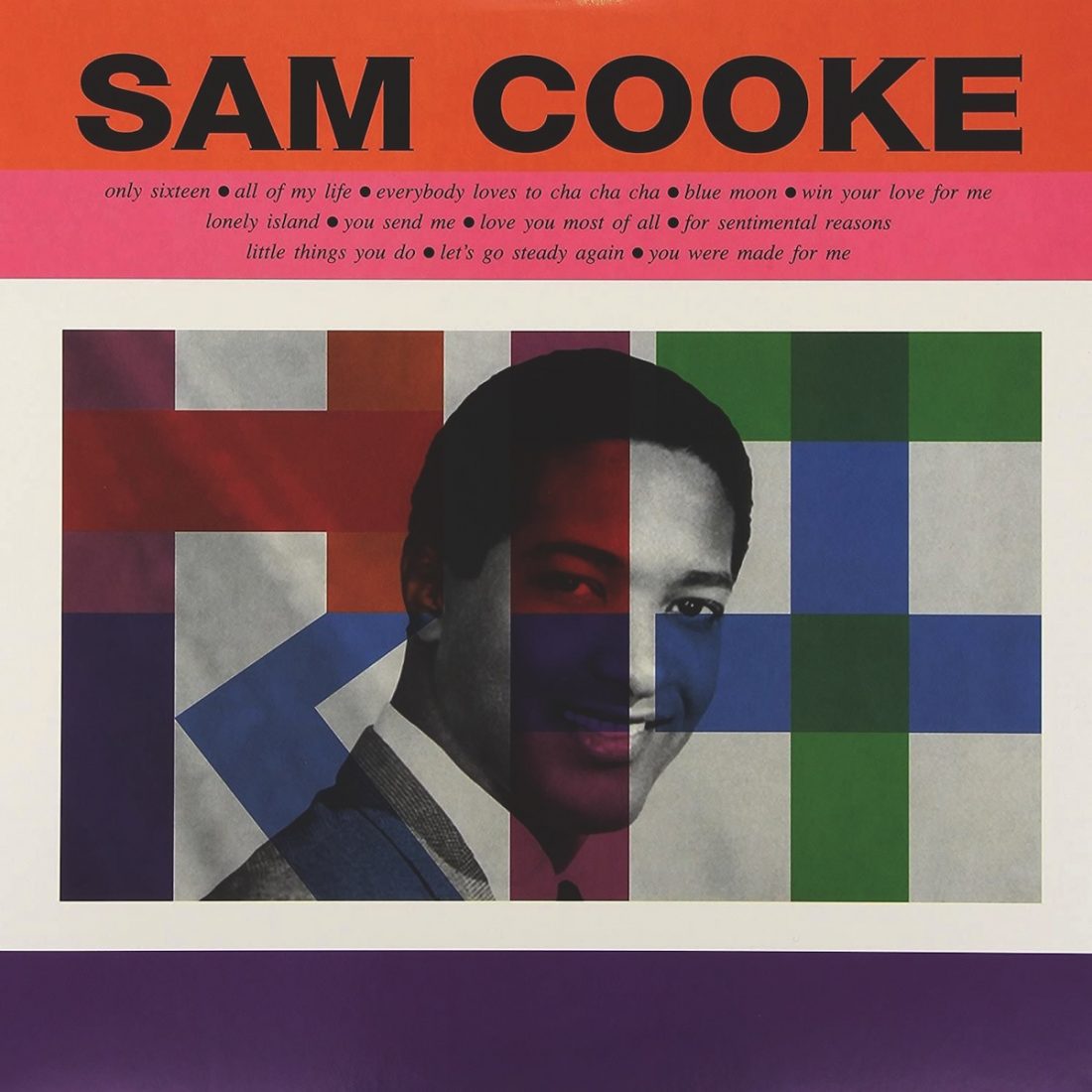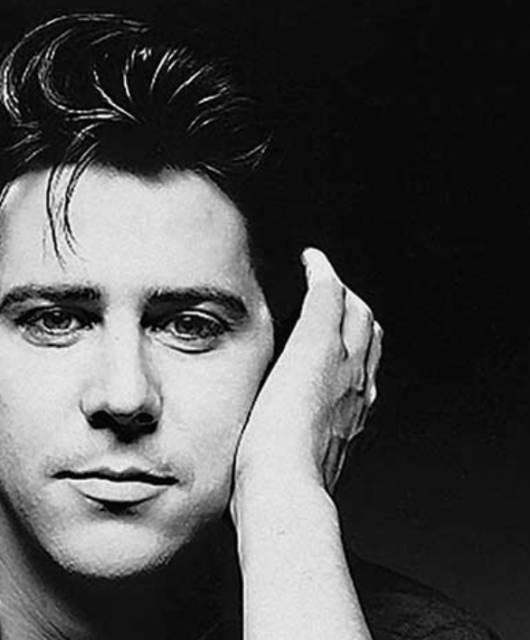Sam Cooke, soul’s first true superstar, blazed a trail that still burns bright… Here Vintage Rock revisits Hit Kit – an indispensable collection of his early hits.
Sam Cooke’s A Change Is Gonna Come was one of the most powerful and moving songs to emerge from the American Civil Rights era. But when Cooke recorded his magnum opus in 1964, he could hardly have imagined that more than 55 years later the United States of America would be emerging from the presidency of a man who appeared to defend white supremacists.
Or that the country’s oldest ally, Britain, which Cooke happily toured with Little Richard in 1962, had as its prime minister an ex-newspaper columnist who’d traded in racially charged comments. Were Cooke alive today, as a man who had counted Malcolm X and Cassius Clay as friends, he could have been forgiven for reworking those famous lyrics to something more disillusioned and angry.
While Cooke would have viewed the course of history with a rueful eye, he might also have wondered about the state of his own music legacy beyond that strangely eerie, totally uncharacteristic song. Like all black performers of his generation, he’d faced degrading racial treatment while out on the road, to which he’d reacted with a mixture of dignified forbearance, contempt and sometimes outright anger.
Class Act
However, as a shrewd businessman, Cooke knew where the money lay, and cut a lot of material shaped to sell to white audiences, whether dance-oriented youngsters or middle-of-the-road older buyers. As a result, while he is widely accepted as the first star of soul – because the bulk of his work tended to be light and poppy – and because his career was ended by his early death in 1964, he’s often been unjustly reduced to a staging post figure en route to the gutsier soul artists that followed.
But this is to overlook Sam Cooke’s unique qualities. It’s true that he was a between-the-eras man. Vocally, he was a skilled technician, one of the few soul singers who could return to the Great American Songbook and weave interpretations that stacked up against old masters such as Frank Sinatra. Handsome and classy, he loved Nat King Cole and could croon with the best of them. As Ray Charles said of his singing, “Nobody else came close”.
Soul Stirring
Born in Clarksdale, Mississippi in 1931, as the son of a preacher who soon after his birth had moved the family to Chicago, Cooke sang gospel with his brothers and sisters in an ensemble called The Singing Children from a young age. He then performed in teenage gospel group the Highway Q.C.’s, before joining one of the greatest of all post-war gospel acts, The Soul Stirrers, replacing the incendiary shouter RH Harris. Yet Cooke was never a shouter of gospel, or any other kind of music. As he wrote in the sleevenotes of his 1959 album of Billie Holiday songs Tribute To The Lady: “Even as I was singing exclusively in church, I was listening to all of the pop singers, and Billie Holiday moved me the most.”
Cooke was never really a classic album man, and Hit Kit was just a speedily assembled selection of singles, half of them self-penned, that the Keen label put together as their star artist was heading out of the door to join RCA in 1959. It’s a worthy timepiece, however, showcasing the unfailing beauty of Cooke’s voice, his ear for melody, and an ability to write songs with simple, catchy hooks. It’s a well-paced assortment, too, bearing testimony to the way Cooke was able to imbue great variety into his material, avoiding the formulaic even when at his most commercial. The only regret is that Wonderful World, one of his best-remembered and biggest-selling singles, is absent from the LP, as it was released after his departure from Keen.
He’s So Wonderful
While most of the songs on Hit Kit sold well at the time, within a decade they were being written off as tame, the impact of Cooke’s marvellous voice softened by tepid arrangements. So it’s important to remember that while the cooing backing vocals were distinctly MOR, they served to frame the melodies brilliantly, and that it was Cooke’s choice to deploy them. And while he emoted far less on these songs than he had done on his earlier gospel recordings, the tracks show how skilfully he deployed the stylings he’d used in that field to telling effect on pop soul.
The landmark track on the album is You Send Me; released as a single in 1957, it went on to shift nearly two million copies. It was the song which effectively launched Keen Records, with Cooke having previously been signed to Specialty as a member of The Soul Stirrers. It was while at Specialty that he’d trialled being a solo artist singing secular material, under the alias Dale Cook, with the release of Lovable, a reworking of gospel number He’s So Wonderful. There was no disguising that incredible voice, however, and there had been a lot of anger in the gospel community, who believed it profane to sing about earthly relationships. Even though Lovable had flopped, Cooke headed back into the studio for another go.
However, when Specialty boss Art Rupe, a firm believer in gospel and more hard-hitting R&B, walked into the session and found Cooke had assembled a white vocal ensemble, the Lee Gotch Singers, to support him on You Send Me, he reacted with fury. As a result, a severance deal was agreed, with Cooke leaving Specialty along with his producer Bumps Blackwell, taking with them the master tapes of the sessions as part of the pay-off. You Send Me, released under the name Sam Cooke on the start-up Keen label, went on to top both the R&B and pop charts, and even spent a week on the British charts at the start of 1958.
Velvet Vocals
You Send Me was the first soul number to break out of the R&B market and cross over into the pop field. Cooke’s trademark “whoa-oh-oh-ah” was an improvisational technique he’d hit upon while in The Soul Stirrers when he’d gone for a note that was too high for his range. This conveyance of emotional ecstasy was one of the ways in which he inadvertently created a template for the many singers of sweet soul who followed him down the years.
The follow-up single (I Love You) For Sentimental Reasons had been a No.1 pop hit for Nat King Cole in 1946. Who else but Cooke could make a number so closely associated with an older master ballad singer sound so distinctly his own? His use of repetition was quite brilliant, his voice seeming to float and glide over the melody. It was rewarded with Top 20 placings on the Billboard pop and R&B charts.
You Were Made For Me was another song in the romantic mode. Despite it only making the Top 30, when interviewed in 1962 Cooke said it was his personal favourite among all of his songs. On the flipside, and also making the Top 30, was Lonely Island, which had a restlessly loping, somewhat bluesy vibe. Keeping the Cole connection going, it was penned by the eccentric, mystical Eden Ahbez, the writer of another of Cole’s most memorable songs, Nature Boy.
Musical Masterclass
Some time before becoming the king of Tijuana brass, a young Herb Alpert had started working as an assistant A&R man at Keen with his friend Lou Adler. Alpert would later recall the enigmatic quality of Cooke, and how he had a larger than life quality about him, a “kind of stardust” that at the same time “could suck up all the oxygen in the room”. Alpert and Adler penned Cooke’s next release, a gentle ballad titled All Of My Life, which deserved better than its fate of missing out on the charts entirely.
Perhaps realising the need for something more upbeat, Cooke’s self-penned Win Your Love For Me changed gear. By the late 1950s, Latin rhythms were in vogue and, with the percussion section augmented by bongos, the song had an almost Calypso feel. One of the staples of Cooke’s road band, Clifton White, who’d played on recordings with The Mills Brothers, Percy Mayfield and Jesse Belvin before joining Cooke and being initially baffled by his use of repetition on You Send Me, contributed the attractive guitar figure.
Although it was a Rodgers and Hart standard from the 1930s, Blue Moon had a versatility that had served numerous reinterpretations over the years, from Billy Eckstine to Elvis Presley. Cooke’s take was an agreeably soulful, mid-tempo shuffle, and once again the backing vocals were used to pleasing effect. While Love You Most Of All is unremarkable, Everybody Loves To Cha Cha Cha and Only Sixteen became two of Cooke’s best remembered singles, despite reaching only No.31 and No.28 respectively on the Billboard pop charts in 1959. In truth, the lyrics of the former haven’t aged as well as its infectious percussion-driven arrangement, complete with congas and bongos. The Blossoms, featuring a young Darlene Love, provided backing vocals. The Cooke vocal on Only Sixteen, with its faint air of nostalgic sadness, is however, a singing masterclass.
Silken Sound
The B-sides of both these singles, Little Things You Do and Let’s Go Steady Again, are also worth noting because they were penned by JW Alexander, Cooke’s friend and business partner. A former singer with another leading gospel outfit in the 1950s, the Pilgrim Travellers, it was Alexander who’d wisely advised a young Cooke not to try to compete with the gospel belters while he was still a novice lead singer with The Soul Stirrers. JW told him he “didn’t have to holler like those guys. Just be sure you’re singing loud enough for the people to hear you – and then be certain they can understand you.”
As a result, Cooke developed the intimate style so apparent on these recordings. Unlike many artists, who sounded as though they were singing anonymously to the back row of the hall, Sam Cooke always made it sound as if he was singing directly to you.
Subscribe to Vintage Rock here






